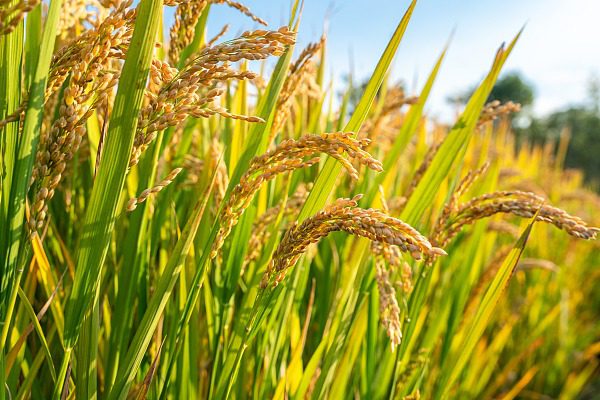Rice varieties introduced from China have significantly enhanced production in Burundi, a Burundi agricultural expert said on Wednesday.
Enhanced collaboration with China has facilitated our country in achieving greater success across various fields of production, especially in grain cultivation and livestock farming, said Alfred Niyokwishimira, director general of Burundi Institute of Agricultural Science and a 2020 alumnus of the Chinese Academy of Agricultural Sciences.
Specifically, the introduction of the eight hybrid rice varieties from China has elevated the rice yield from 3 to 4 tons per hectare to 9 to 10 tons per hectare, mitigating the hunger and malnutrition challenges in Burundi, Niyokwishimira added.
He made the remarks at the inaugural joint agricultural research and development symposium organized by the National Natural Science Foundation of China and the Bill & Melinda Gates Foundation from Wednesday to Thursday.
Situated in East-Central Africa, Burundi, despite being a typical agricultural country obtaining abundant sunlight, warmth and land resources, faces serious food security crises due to factors such as weak infrastructure, outdated agricultural techniques, agricultural machinery shortage, and plant diseases and pest infestations.
To fulfill the commitments made at the Beijing Summit of the Forum on China-Africa Cooperation, China has dispatched around 50 agricultural experts to Burundi since 2009 to enhance collaboration in practical agricultural technology and the training of agricultural professionals. These experts specialize in various fields such as rice cultivation, agricultural product processing, aquaculture, fruit tree cultivation, livestock and poultry management, and soil fertilization.
The introduced hybrid rice varieties were meticulously selected by Chinese and Burundian agricultural experts after conducting on-site assessments of local conditions and are now being promoted across Burundi, Niyokwishimira said.
We highly appreciate the quality of the seeds exported from China to Burundi, and they have made a significant contribution to increasing production yields, Niyokwishimira said.
He also expressed optimism that the high-yield hybrid rice varieties in Burundi can be effectively expanded to West African nations.
Niyokwishimira pointed out that although notable progress has been made through bilateral cooperation aimed at improving people”s well-being and fostering sustainable agricultural development, Burundi continues to encounter numerous challenges. New cooperation projects between China and Burundi are under way in areas of agricultural machinery, livestock vaccine promotion, horticulture, and bean and fruit cultivation, he added.
In African nations, including Burundi, all harvesting activities are conducted manually, resulting in approximately 40 percent of harvested crops being wasted and complicating quality control processes, he said, emphasizing that agricultural machinery can enhance production efficiency while ensuring quality.
In face with changing climate conditions, he also highlighted the urgency of presenting a solution in the agricultural sector, noting that shifting rainfall patterns and rising temperatures have created new requirements for irrigation, farming schedules and harvest management.
Source link : https://www.chinadaily.com.cn/a/202405/30/WS66587179a31082fc043ca13d.html
Author :
Publish date : 2024-05-30 08:30:00
Copyright for syndicated content belongs to the linked Source.
